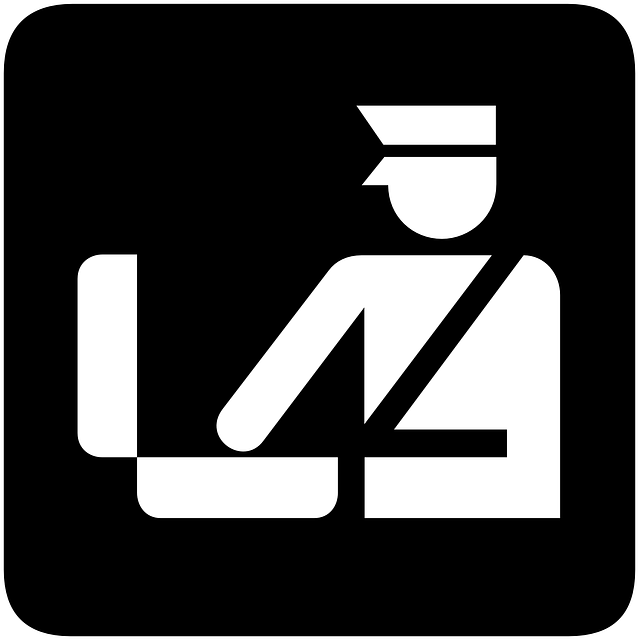After Brexit, UK-based businesses dealing with cross-border transactions must accurately complete a range of customs documents including import and export declarations, commercial invoices, packing lists, and certificates of origin. These documents are vital for compliance with UK customs regulations and ensure proper handling by Her Majesty's Revenue and Customs (HMRC). For non-English language documents, UK translation services are essential to provide precise translations that adhere to legal standards and formats. This precision is crucial for avoiding delays or fines due to misinterpretation, ensuring efficient supply chains, and maintaining compliance. Businesses must also be aware of the specific forms required, such as the Single Administrative Document (SAD) and Transporter's Consignment Note. For goods from non-EU countries, documents like the EUR1 or AES form are necessary for duty relief claims. In summary, UK translation services are critical for international trade within the UK to ensure that all customs documentation is linguistically accurate and procedurally compliant, facilitating seamless trade and upholding a company's reputation as a trustworthy partner in the UK market.
Navigating the complexities of international trade requires meticulous attention to customs and trade documents within the UK framework. This article delves into the critical aspects of ensuring legal compliance in this domain, emphasizing the indispensable role of accurate documentation. We explore the essential components of UK customs documents, elucidate the significance of precise declaration forms, and offer guidance on leveraging professional translation services for compliance and efficiency. By adhering to best practices and staying abreast of legal requirements, businesses can seamlessly integrate into the UK’s customs procedures, safeguarding their operations against potential disruptions.
- Understanding Customs and Trade Documents in the UK Context
- The Role of Accurate Documentation in Customs Procedures
- Essential Components of UK Customs Documents
- Navigating Legal Requirements for UK Customs Declarations
- Utilizing Professional Translation Services for Compliance and Efficiency
- Best Practices for Maintaining Legal Compliance with UK Customs Regulations
Understanding Customs and Trade Documents in the UK Context

navigating the intricacies of UK customs and trade documents is a critical aspect for businesses engaging in cross-border transactions. The UK’s departure from the European Union has necessitated a reevaluation of compliance with local customs regulations, making understanding these documents indispensable for seamless trade operations. Key among these documents are those related to import and export declarations, commercial invoices, packing lists, and certificates of origin. These documents facilitate the smooth flow of goods by providing necessary information to customs authorities, ensuring that all legal requirements are met.
To accurately complete and submit these documents, businesses may require specialized UK translation services. Such services not only ensure linguistic accuracy but also help in adhering to the specific formats and details mandated by UK customs. This is particularly important when dealing with international partners who might provide documentation in a language other than English. Utilizing professional translation services can mitigate the risk of delays or penalties due to miscommunication or misunderstanding of customs procedures. By ensuring that all trade documents are accurate and compliant, businesses can avoid disruptions and maintain efficient supply chains.
The Role of Accurate Documentation in Customs Procedures

When engaging in trade with the United Kingdom, adherence to customs procedures is paramount for the smooth and legal movement of goods across borders. Accurate documentation serves as the linchpin of compliance within UK customs, ensuring that all imported or exported items conform to the country’s strict regulatory framework. The suite of Customs and Trade Documents UK traders must navigate includes a wide array of forms, declarations, and certifications, each with its own specific requirements. These documents not only facilitate the assessment and payment of applicable duties and taxes but also provide vital information for customs officials to determine the admissibility of goods.
In this context, precision in documentation is crucial, as errors or omissions can lead to delays, additional costs, and even legal penalties. Translation services play a significant role, especially for businesses operating internationally, as they must accurately translate and convey information across different languages while maintaining the integrity of the original data. Utilising professional UK translation services ensures that all Customs and Trade Documents are correctly translated and understood, thereby reducing the risk of miscommunication and non-compliance. This meticulous attention to detail in documentation and translation is an integral part of the customs process, safeguarding businesses from potential disruptions and reinforcing their reputation as reliable trade partners within the UK market.
Essential Components of UK Customs Documents

When engaging with trade across the United Kingdom’s borders, adherence to customs regulations is paramount. The UK Customs and Trade Documents play a crucial role in this process, facilitating the smooth movement of goods while ensuring compliance with legal requirements. These documents serve as the official records for importing or exporting goods and must be accurately completed to avoid delays or penalties. Key components of these documents include the Commercial Invoice, which provides detailed information about the goods being transported, such as a description of the items, their value, and the terms of sale. Additionally, importers and exporters must submit a Packing List, which outlines the quantity, weight, and dimensions of the consignment, aiding in the clearance process at the port of entry. For transactions where goods are transferred between parties under different customs regimes, a Movement Certificate or T1 Carnet is required. Furthermore, when goods are shipped from non-EU countries to the UK, an EUR1 or AES (Additional Reporting Scheme) form may be necessary to claim relief from import duties and taxes. Lastly, for shipments that require translation due to language barriers, UK translation services specializing in customs documents can provide precise translations to ensure accurate information transfer and legal compliance. Utilizing professional translation services is particularly important for documents like the Single Administrative Document (SAD) and the Transporter’s Consignment Note, which are critical for post-importation or exportation procedures. These documents must be complete and correct to navigate the UK’s customs process efficiently and legally.
Navigating Legal Requirements for UK Customs Declarations

When engaging with UK customs, businesses must meticulously prepare and submit all required customs declarations and trade documents to ensure a smooth process. The UK’s departure from the European Union has necessitated an updated understanding of customs procedures, including the completion of accurate import and export entries. These documents serve as critical interfaces between businesses and Her Majesty’s Revenue and Customs (HMRC), facilitating the efficient clearance of goods across borders.
To navigate these requirements effectively, it is advisable to leverage specialized customs and trade documents UK translation services. Such services can bridge language barriers and ensure that all documentation complies with both UK and EU regulations. This is particularly important for businesses dealing with multiple jurisdictions, where the nuances of legal compliance can significantly impact trade operations. Translation accuracy is paramount, as any discrepancies or misinterpretations could lead to delays or penalties. By utilizing professional translation services, companies can minimize risks and maintain a compliant and efficient customs process.
Utilizing Professional Translation Services for Compliance and Efficiency

Navigating the complexities of international trade requires meticulous attention to detail, particularly when it comes to customs and trade documents in the UK. To ensure that all necessary paperwork meets the legal standards for compliance, businesses often turn to professional translation services. These services are adept at converting documentation from one language to another while maintaining the integrity and clarity of the original content. Utilizing such expertise is not just about legality; it’s an essential component for seamless trade operations. The UK’s translation services specialize in customs and trade documents, offering a bridge between different linguistic markets by providing accurate translations that satisfy legal requirements. This accuracy minimizes delays and reduces the risk of misinterpretation at borders, facilitating the efficient flow of goods across international lines. By leveraging the skills of professional translators, companies can confidently adhere to UK customs regulations, ensuring their trade documents are understood and accepted in the intended jurisdictions.
Best Practices for Maintaining Legal Compliance with UK Customs Regulations

When engaging with the complexities of UK customs, businesses must adhere strictly to the regulations set forth by Her Majesty’s Revenue and Customs (HMRC) to maintain legal compliance. A meticulous approach to preparing and submitting customs and trade documents is paramount. Key among these practices is ensuring all documentation is accurate and complete. This includes details of the goods being transported, their value, country of origin, and any applicable tariff codes. Companies should also stay abreast of Brexit-related changes that have altered the import/export procedures. Utilizing UK translation services for multilingual documents can mitigate errors and delays caused by language barriers. It is also advisable to engage with customs brokers who are well-versed in the nuances of UK customs regulations. They can provide valuable guidance on navigating the necessary documentation, including commercial invoices, packing lists, and cargo tracking notes. Regular training for staff responsible for document preparation ensures compliance is upheld over time. By staying informed of the latest customs rules and regulations, businesses can minimize the risk of penalties and delays, facilitating a smoother transition through UK borders. Additionally, maintaining robust documentation practices supports efficient processing and can enhance the reputation of a business as a reliable and compliant entity within the international trade landscape.
navigating the complexities of UK customs requires meticulous attention to detail, particularly when it comes to customs and trade documents. This article has delineated the critical components and best practices for ensuring legal compliance within this system. From understanding the role of accurate documentation to recognizing the importance of professional translation services in facilitating compliance and efficiency, businesses can significantly benefit from a thorough grasp of UK customs regulations. By adhering to the guidelines outlined, entities can confidently manage their import/export operations, thereby avoiding potential legal pitfalls and ensuring seamless trade processes within the UK context.



